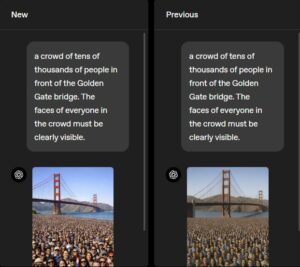
After dipping their toes in the water in the past 18 months, Asia-Pacific enterprises will move beyond early experimentations and start seeking tangible returns on AI investments from next year, according to study released by IBM last week.
Of the 518 Asia-Pacific organisations surveyed, more than half (54 per cent) expected AI to provide longer-term benefits for their business in areas such as innovation or revenue generation. The APAC AI Outlook 2025 report included a survey by research firm Ecosystm and was commissioned by IBM.
Open-source AI solutions that can integrate with any technology vendor is key to success as it avoids vendor lock-in, the report noted.
Nearly 60 per cent of surveyed Asia-Pacific organisations expect to reap the benefits of their AI investments within two to five years, with only 11 per cent expecting returns within the next two years.
The findings reflect a growing urgency among organisations to move beyond the hype of AI and seek more enduring improvements that early efforts have often failed to catalyse. As the promise of AI faces a reality check, many are making their bets on the most “winnable” segments of their business in the next 12 months.
In 2025, the IBM report says that APAC firms will focus their AI investments on enhancing customer experience (21 per cent), back-office business process automation (18 per cent), and sales automation and customer lifecycle management (16 per cent).
Before they can achieve these goals, organisations need to address challenges, such as data complexity (39 per cent), high cost of implementation and solution (36 per cent), and limited number of use cases defined (35 per cent).
“While we’ve seen exciting glimpses of AI’s potential, many organisations are still struggling to harness its full power,” said Hans Dekkers, general manager of IBM Asia Pacific.
“Smaller, targeted models will gain traction, along with flexible open-source architecture and the ability to manage seamless integration of AI platforms from any tech provider. And the ultimate goal is to achieve a human-centric future AI,” he said.
Ecosystm also identified five trends shaping AI in the Asia-Pacific.
- Rightsizing AI: A shift to purpose-built, open-source models signifies a step toward more efficient and targeted AI applications, in contrast to large language models (LLMs). These “Rightsizing AI” models are designed for specific use cases, including local languages, regional contexts, and simpler computational tasks.
- Unified AI: Enterprises are turning to new tools for visibility, governance and seamless AI integration. The use of robust orchestration tools will ease the management of the use of AI solutions.
- Agentic AI: AI agents will be used to autonomously execute tasks and collaborate with human workers. The use of Agentic AI, which combines AI with automation, can drive improvements in operational efficiency, customer experience, and decision-making. However, robust internal guardrails and regular evaluation of AI models are needed to ensure ethical and responsible use.
- Strategic AI: Firms will prioritise AI projects that are feasible or impact the business positively in a Strategic AI approach. The challenge is scaling AI through use cases that maximise revenue opportunities and ROI.
- Human-centric AI: The next phase of AI adoption will focus on amplifying human potential. Human-centric AI shifts the focus from productivity tools to solutions that enhance creativity, collaboration, and innovation.
Ullrich Loeffler, CEO of Ecosystm, said that human beings are indispensable in AI’s evolution, and should be involved at every stage of the technology, which includes maintaining oversight of critical applications.
“The purpose of AI should always be to make a positive impact on the world, fostering a culture of trust, collaboration and co-creation,” he noted. “Progress should be premised on the idea that AI enhances rather than replaces humans, with both working and growing together.”
IBM Consulting is using AI agents to write user stories, build code and to use test code for its clients, said Abraham Thomas, managing partner for IBM Consulting in ASEAN.
“We use AI in a transparent way, in an open way and in an explainable way to our clients,” he added. “We always tell our consultants that it is better to use AI to be more productive than to be a consultant who is not using AI at all.”






